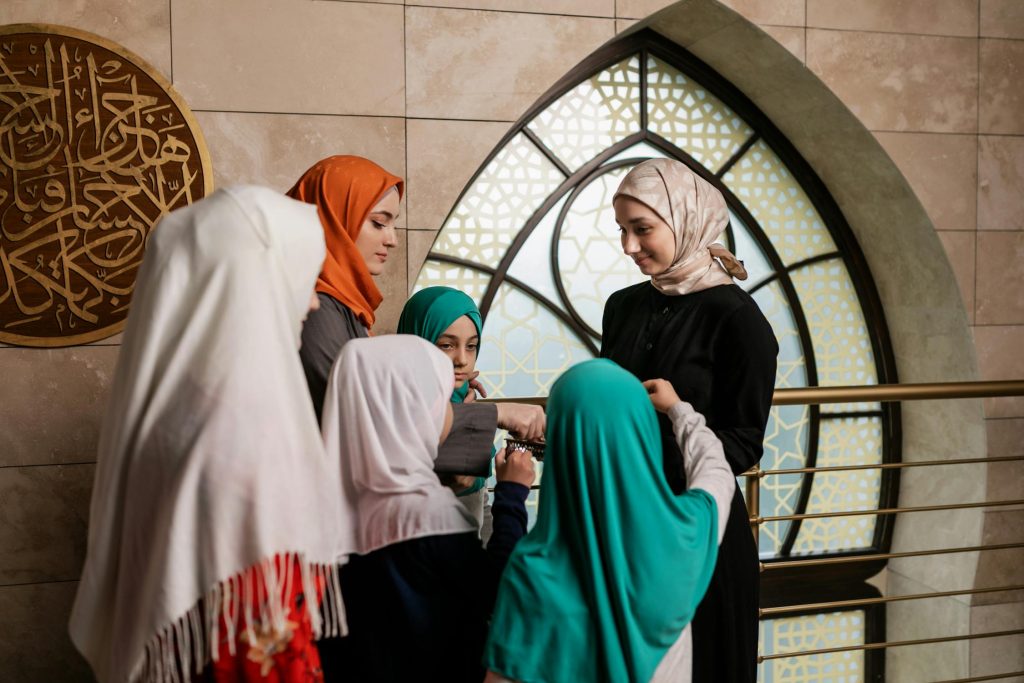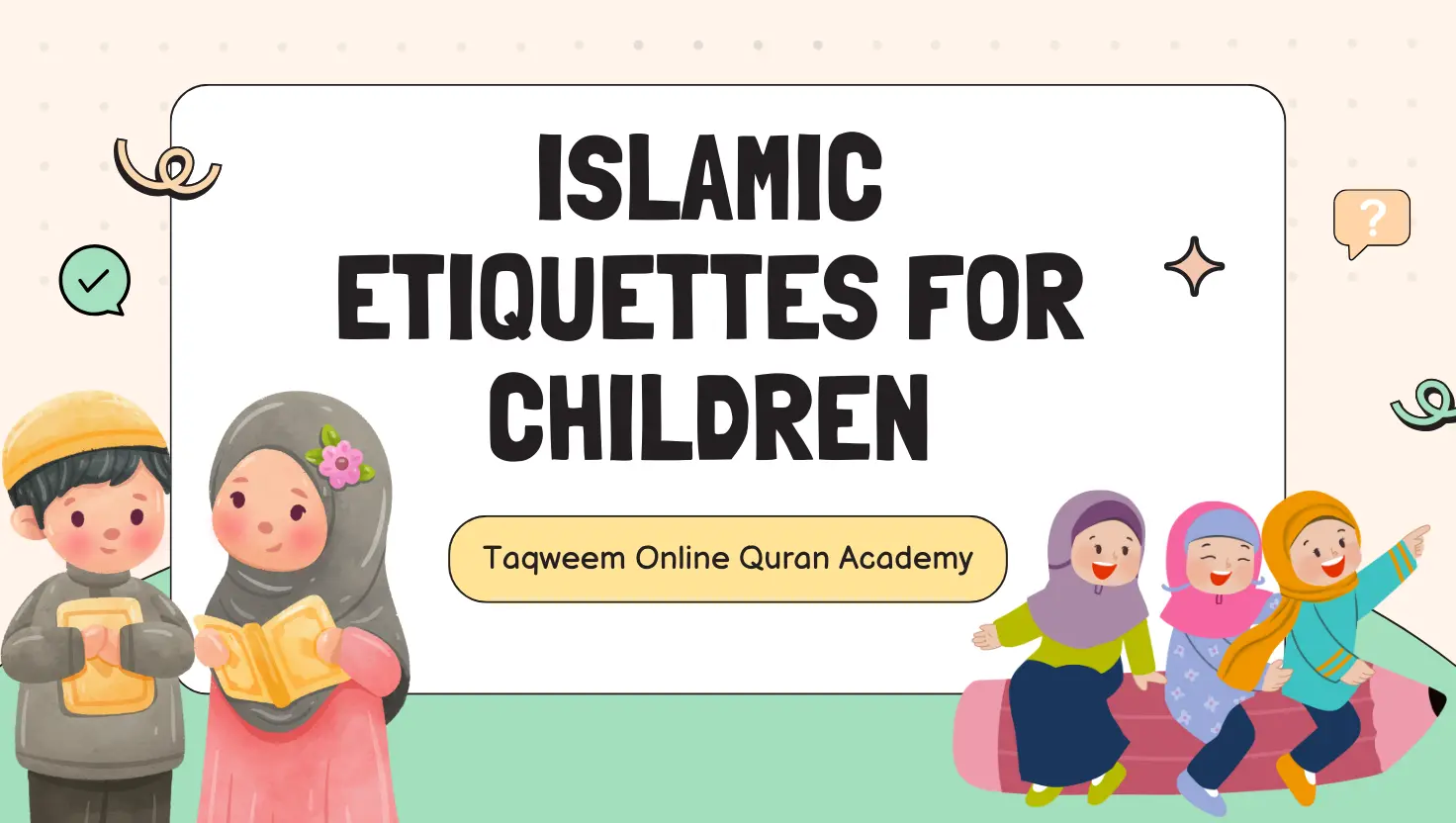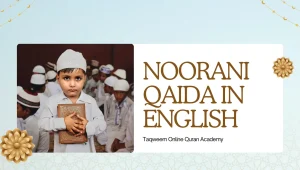Table of Contents
ToggleWhy Teaching Islamic Etiquettes Matters for Kids
When I think about raising kids today, my heart feels heavy. The world is loud and distracting, and that’s why Islamic etiquettes for children adab are so important. Teaching kids to say Bismillah, to show respect, to spread salam, and to carry modesty isn’t about strict rules. It’s about shaping their hearts with love so kindness and faith become part of who they are.
Saying “Bismillah” with Little Lips
One of the most heart-melting things is when you hear a child say “Bismillah” before eating. It’s such a small act, but it tells you their little heart already knows Who provides. Teaching kids this isn’t about ritual; it’s about giving them the habit of remembering Allah in the simplest, everyday moments.
Respecting Parents Without Fear
I used to think respect meant being afraid. But Islam teaches a different kind of respect — one rooted in love. When kids learn to lower their voices, to say “thank you, Mama” or “JazakAllahu Khairan, Baba,” it’s not about fear. It’s about honoring the people who love them most. And trust me, when respect grows from love, it lasts.
Spreading Peace with Salam
There’s something magical about hearing a child say “As-salamu Alaikum”. It’s not just a greeting — it’s a blessing, a prayer, a bridge between hearts. Imagine if every child grew up spreading salam; how much softer this world would be.

Cleanliness Beyond Soap and Water
Islam teaches that cleanliness is half of faith. But with children, it’s not only about washing hands or brushing teeth. It’s about learning that being clean — inside and out — is part of loving Allah. Even tidying up toys can become an act of worship if done with the right heart.
Gentle Words, Gentle Souls
Children repeat what they hear. If we fill their ears with kindness, they’ll carry that forward. Teaching them not to mock, not to lie, not to use harsh words — these are lessons that make their souls gentle. The Prophet ﷺ was known for his soft words, even when he was hurt. That’s the model we want our children to grow up with.
Loving the Young, Honoring the Old
The Prophet ﷺ said: “He is not one of us who does not show mercy to our young and respect to our elders.” Teaching children this isn’t about lectures. It’s about showing them, day after day, how to love their younger siblings, how to greet elders warmly, how to sit and listen.
Eating with Grace
You know those small things — eating with the right hand, not wasting food, sitting down while drinking? They may seem minor, but when kids practice them, they learn that even eating is a way of remembering Allah. Suddenly, dinner becomes more than just filling the stomach; it becomes worship.
Modesty in a Loud World
Children are growing up in a world that praises showing off. But Islam gently teaches modesty — in dress, in behavior, in speech. Helping children understand that humility is strength is one

Closing Thoughts
Islamic etiquettes for children are not complicated; they’re natural, gentle, and full of love. If we plant these seeds early, we’ll see them grow into strong, compassionate believers who carry Islam in their character, not just in their words.
And if you want your child to learn Quran, Sunnah, and etiquettes in a nurturing way, Taqweem Online Quran Academy is here to help. With patient, qualified teachers, they make learning easy and heartfelt for kids — right from your home. Give your child the gift of Quran and adab.
FAQs
What are the rules for children in Islam?
In Islam, children are taught to pray from the age of seven, show respect to parents, speak truthfully, and practice kindness. The rules are gentle guidance meant to shape good character.
How to teach kids manners in Islam?
You can teach kids Islamic manners by leading with example — saying Salam, eating with the right hand, sharing, and remembering Allah’s name before meals. Stories from the Prophet’s life make it easier for them to learn.
What are some Islamic etiquettes?
Islamic etiquettes include greeting with Salam, respecting elders, helping others, lowering the gaze, eating modestly, and avoiding hurtful words. These etiquettes build respect and love in daily life.
What is respect in Islam for kids?
For kids, respect in Islam means listening to parents, honoring teachers, being kind to friends, and showing good manners. Respect is seen as part of faith.
How do you explain respect to kids?
You can explain respect by saying: “Respect means treating others the way you want to be treated.” In Islam, this includes using kind words, sharing, and showing gratitude.
What is responsibility in Islam for kids?
Responsibility in Islam for children includes learning prayer, keeping promises, helping at home, and caring for others. It helps them grow into trustworthy adults.
What are 5 ways to show respect?
Five ways to show respect are: listening carefully, using polite words, helping others, not interrupting, and showing gratitude. These align with Islamic teachings of good character.
What are the golden rules of respect?
The golden rules of respect are: treat others kindly, listen, speak the truth, help those in need, and never mock or hurt others. These reflect the teachings of Prophet Muhammad ﷺ.






